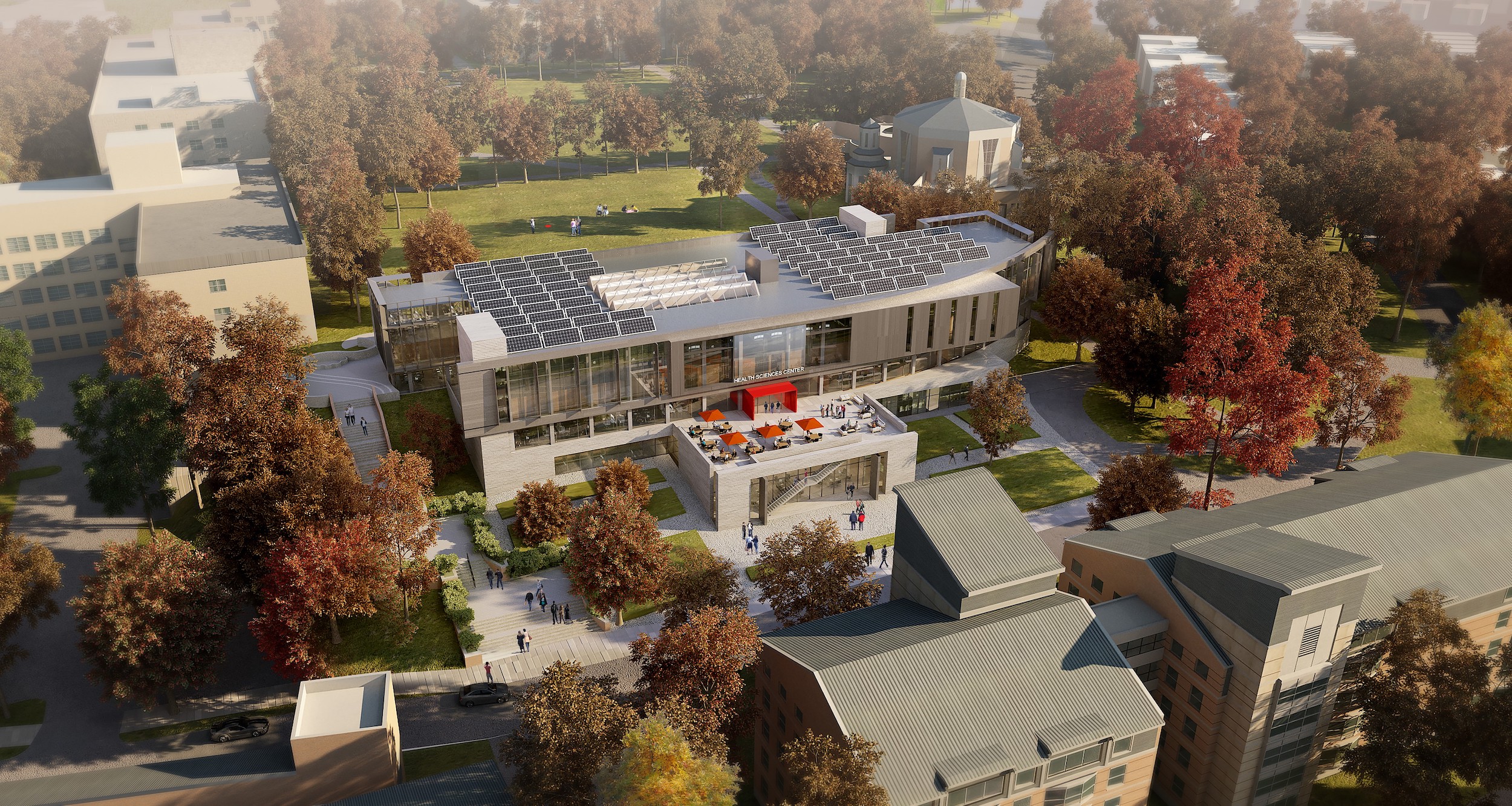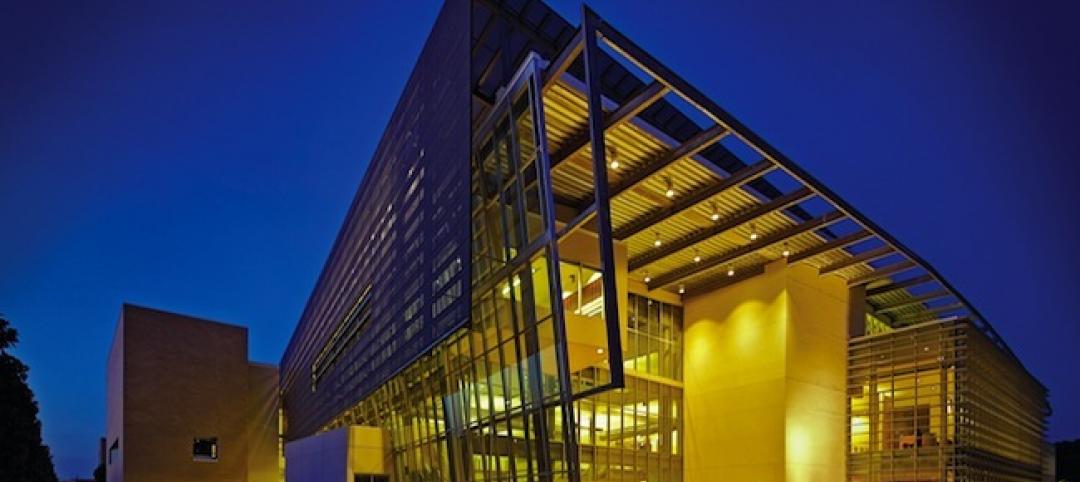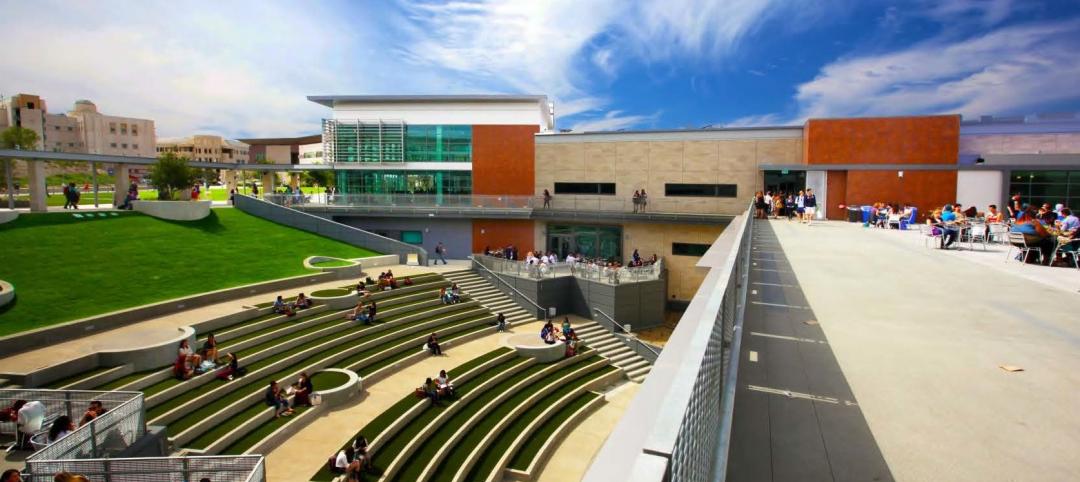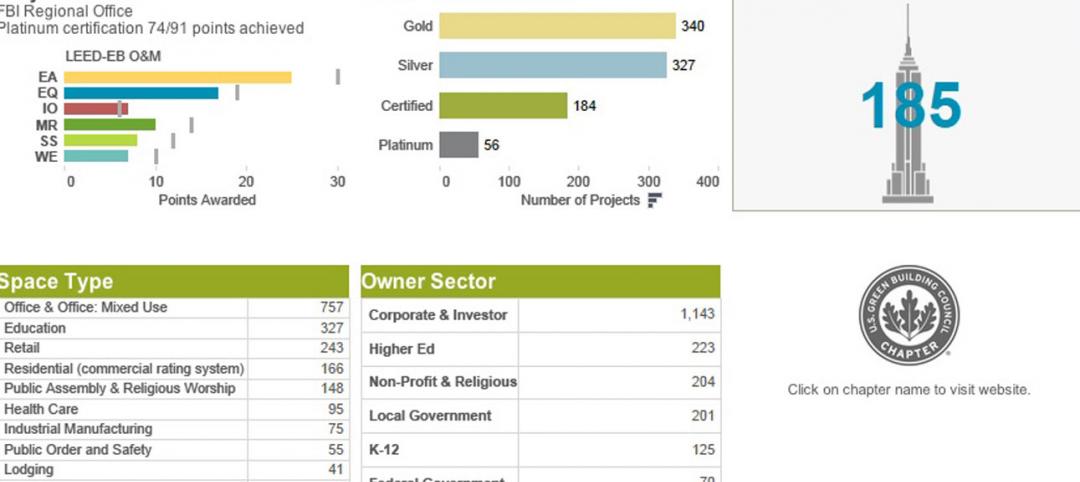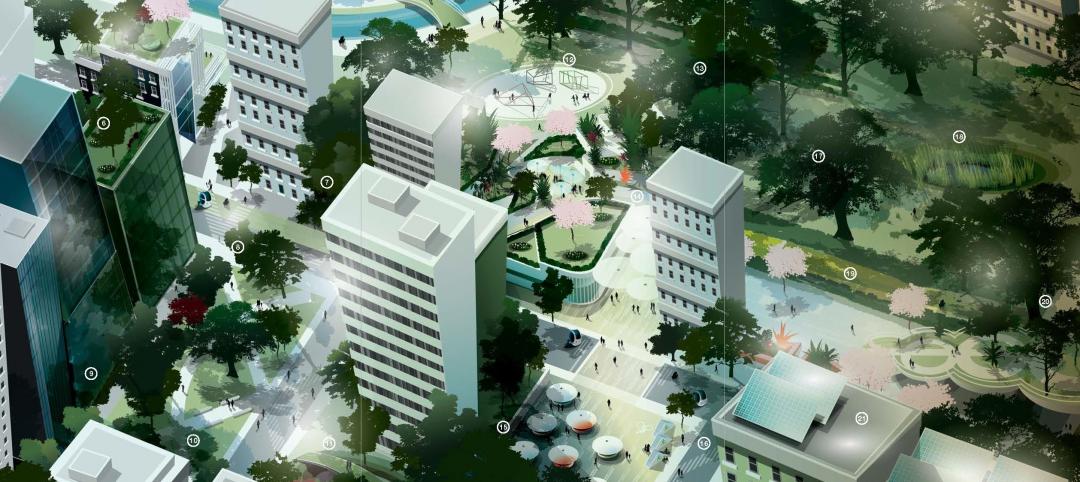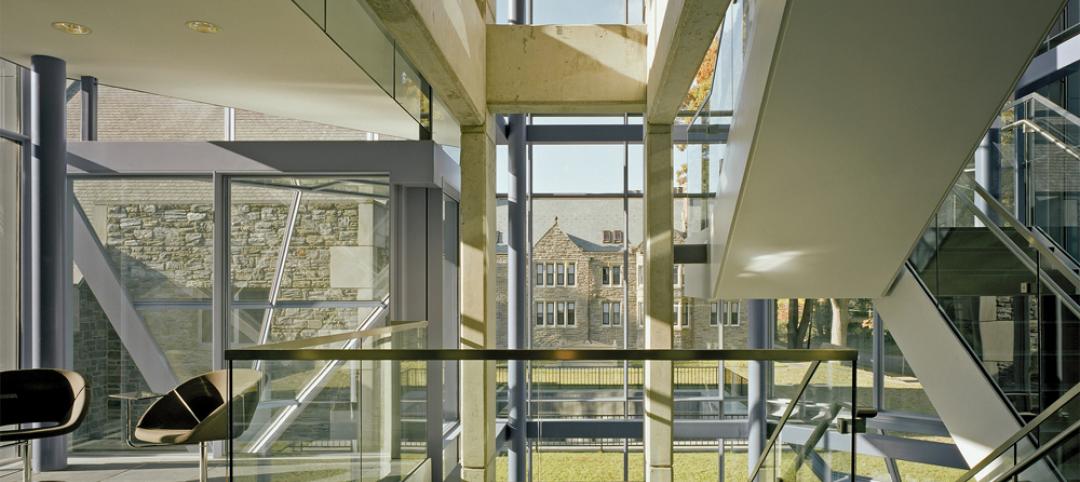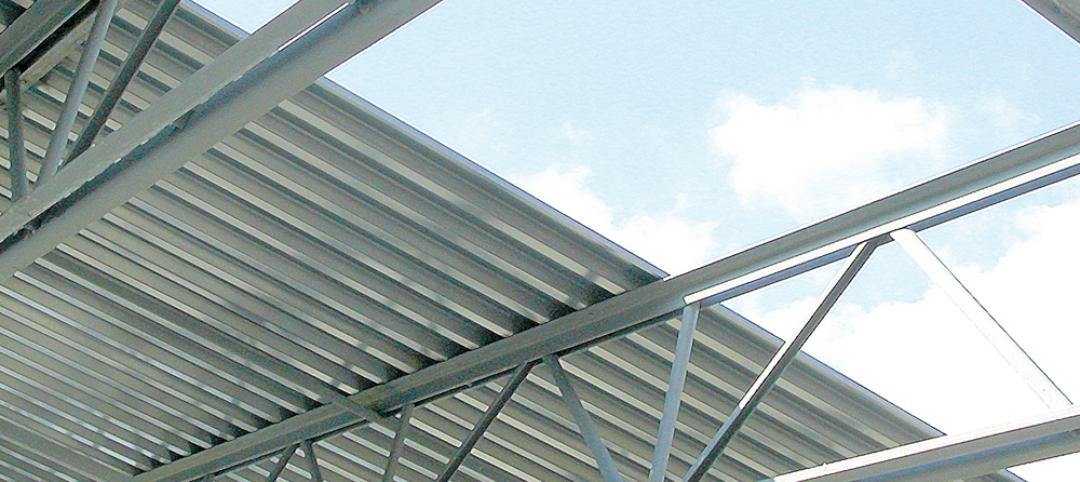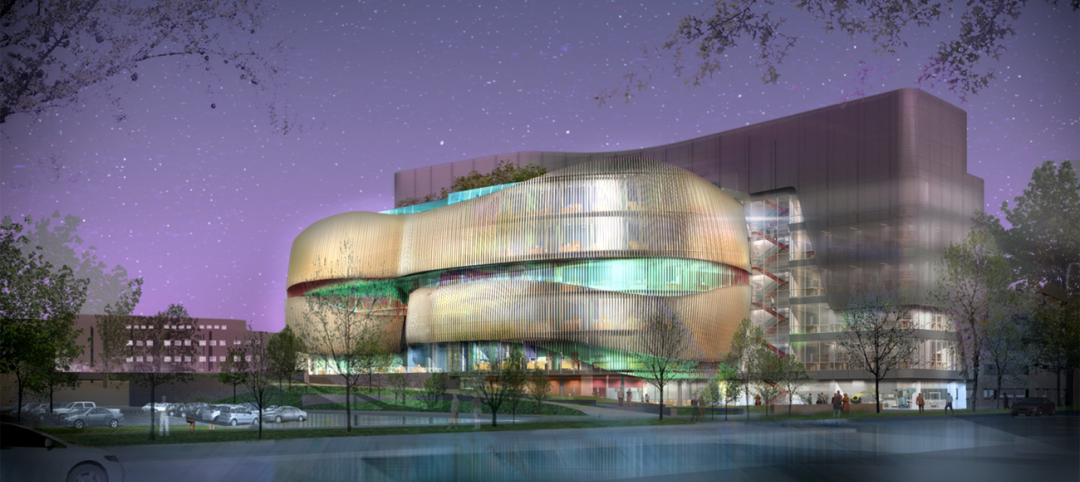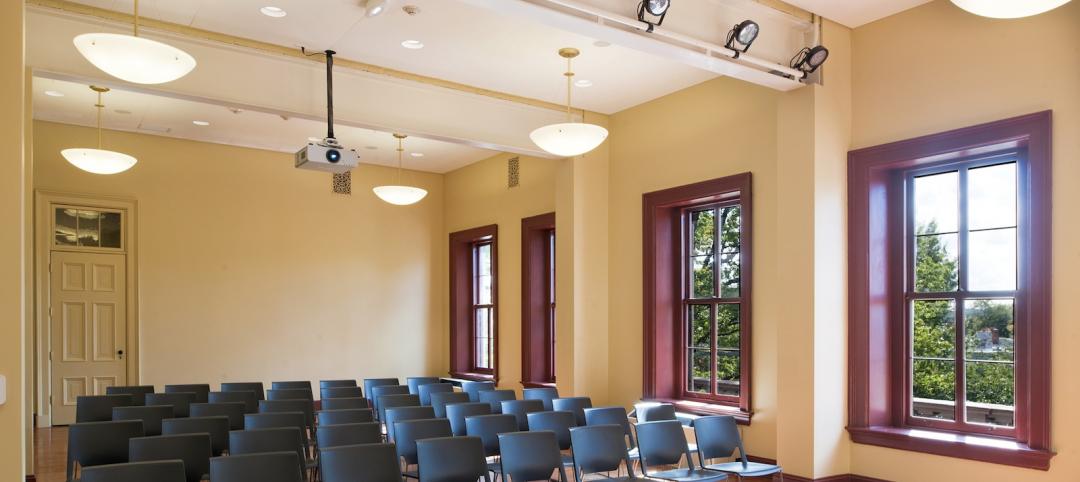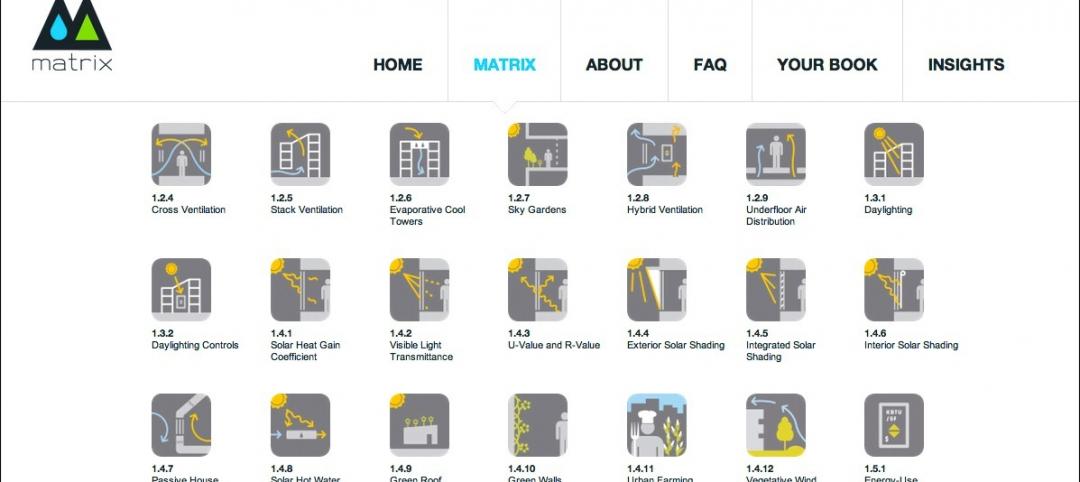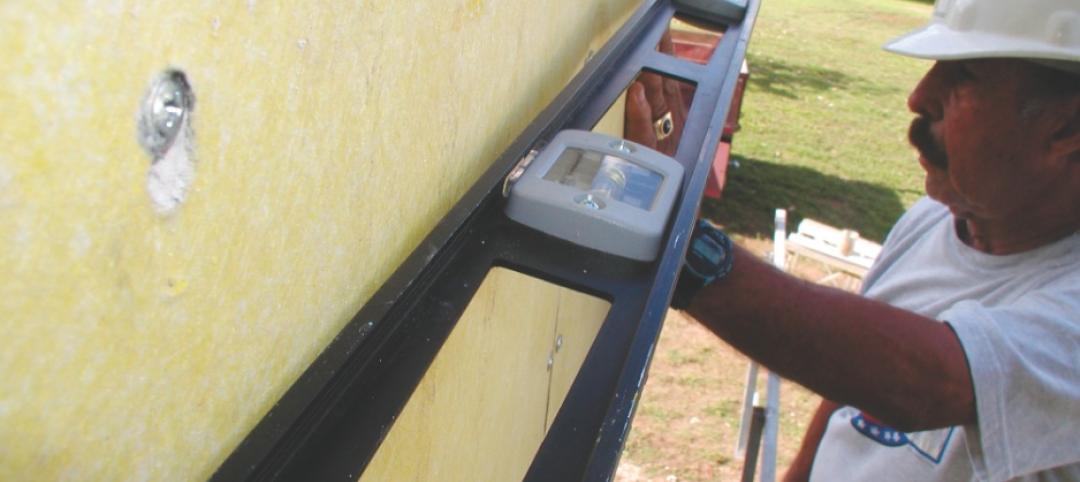The recently topped off St. Vincent Health Sciences Center at St. John’s University in New York City will feature impressive green features, including geothermal heating and cooling and an array of rooftop solar panels. The geothermal field consists of 66 wells drilled 499 feet below ground which will help to heat and cool the 70,000-sf structure.
High-performance, energy-efficient windows will reduce thermal loss. The elongated east-west floor plan of the building will maximize daylight, and skylights will help reduce artificial lighting usage by 22% during daylight hours. State-of-the-art building control systems will optimize lighting, space occupancy, and temperature throughout the building. The facility is projected to be one of the greenest buildings on campus.
The bright, sun-splashed Dorethea and Nickolas Davatzes Atrium will welcome visitors as they enter from the Great Lawn. The center will feature state-of-the-art classrooms, cutting-edge laboratories, patient simulation facilities, and transformative virtual reality technology to support real-world clinical training that is redefining what is possible in the healthcare industry, according Shawmut Design and Construction, the project's construction manager.
When complete, the building will feature collaborative spaces, outdoor terraces, and attractive vistas to become a hub for generations of caregivers, healthcare professionals, and individuals who are committed to improving the lives of others. The facility is scheduled to open in 2024.
Owner and/or developer: St. John’s University
Design architect: CannonDesign
MEP engineer: CannonDesign
Structural engineer: CannonDesign
Construction manager: Shawmut Design and Construction
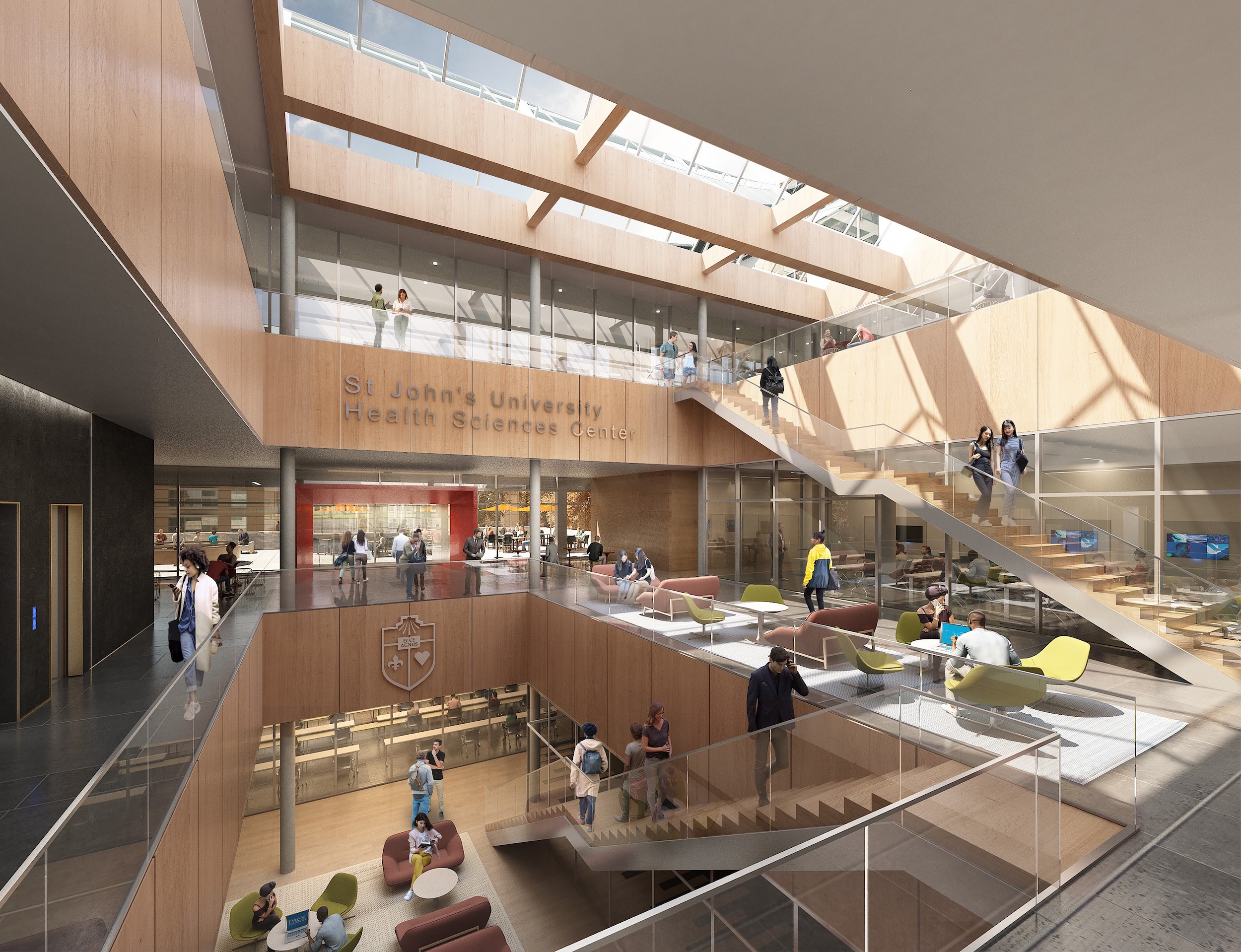
Related Stories
| May 10, 2014
How your firm can gain an edge on university projects
Top administrators from five major universities describe how they are optimizing value on capital expenditures, financing, and design trends—and how their AEC partners can better serve them and other academic clients.
| May 1, 2014
First look: Cal State San Marcos's posh student union complex
The new 89,000-sf University Student Union at CSUSM features a massive, open-air amphitheater, student activity center with a game lounge, rooftop garden and patio, and ballroom space.
| Apr 29, 2014
USGBC launches real-time green building data dashboard
The online data visualization resource highlights green building data for each state and Washington, D.C.
Smart Buildings | Apr 28, 2014
Cities Alive: Arup report examines latest trends in urban green spaces
From vertical farming to glowing trees (yes, glowing trees), Arup engineers imagine the future of green infrastructure in cities across the world.
| Apr 16, 2014
Upgrading windows: repair, refurbish, or retrofit [AIA course]
Building Teams must focus on a number of key decisions in order to arrive at the optimal solution: repair the windows in place, remove and refurbish them, or opt for full replacement.
| Apr 9, 2014
Steel decks: 11 tips for their proper use | BD+C
Building Teams have been using steel decks with proven success for 75 years. Building Design+Construction consulted with technical experts from the Steel Deck Institute and the deck manufacturing industry for their advice on how best to use steel decking.
| Apr 8, 2014
Science, engineering find common ground on the Northeastern University campus [slideshow]
The new Interdisciplinary Science and Engineering Building is designed to maximize potential of serendipitous meetings between researchers.
| Apr 2, 2014
8 tips for avoiding thermal bridges in window applications
Aligning thermal breaks and applying air barriers are among the top design and installation tricks recommended by building enclosure experts.
| Mar 26, 2014
Callison launches sustainable design tool with 84 proven strategies
Hybrid ventilation, nighttime cooling, and fuel cell technology are among the dozens of sustainable design techniques profiled by Callison on its new website, Matrix.Callison.com.
| Mar 20, 2014
Common EIFS failures, and how to prevent them
Poor workmanship, impact damage, building movement, and incompatible or unsound substrate are among the major culprits of EIFS problems.


